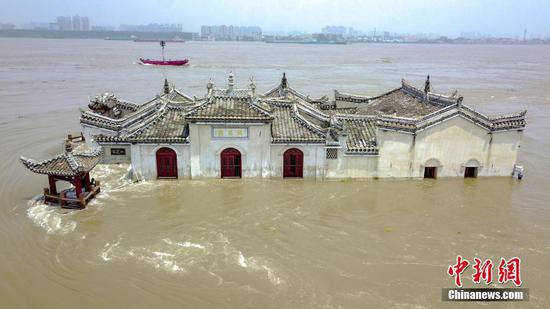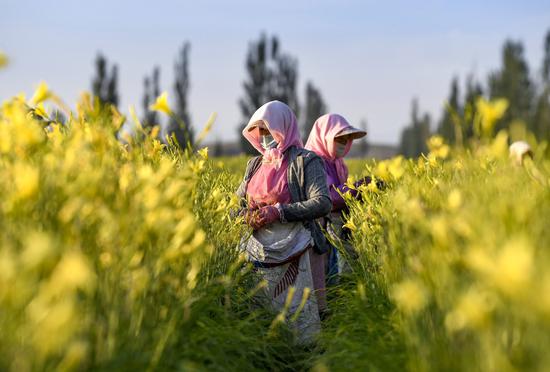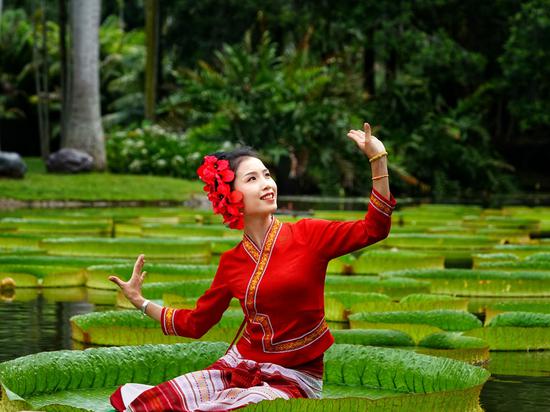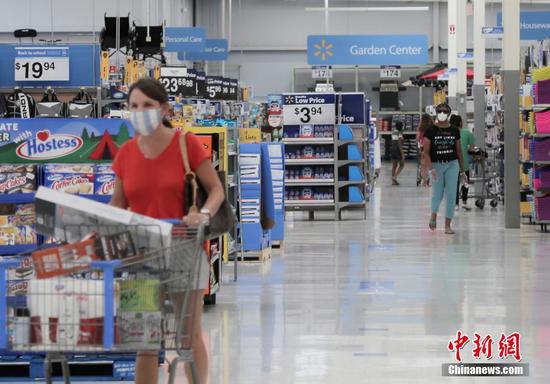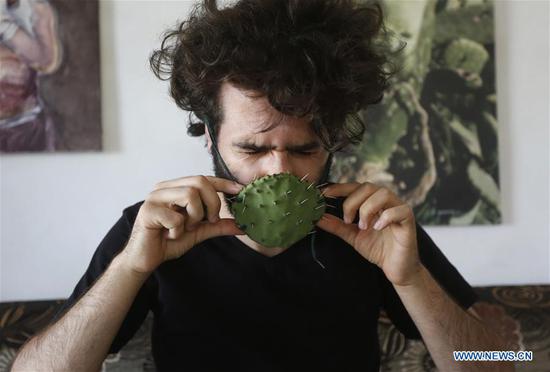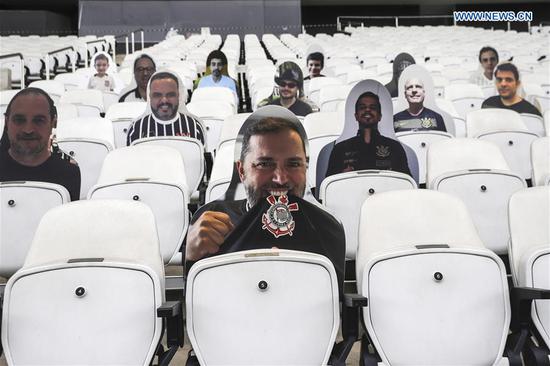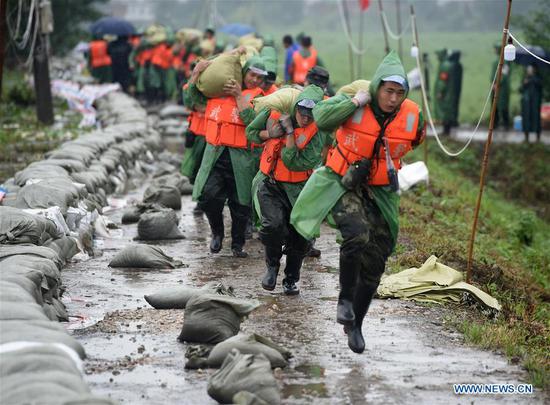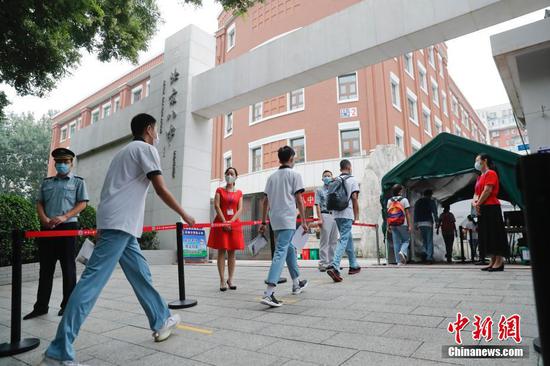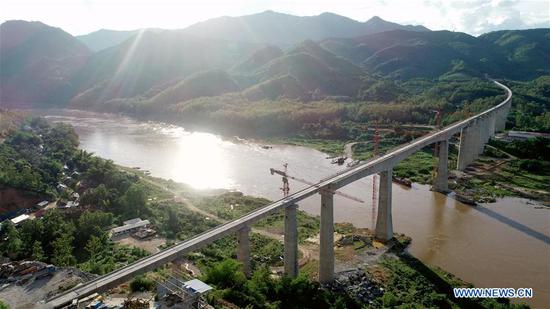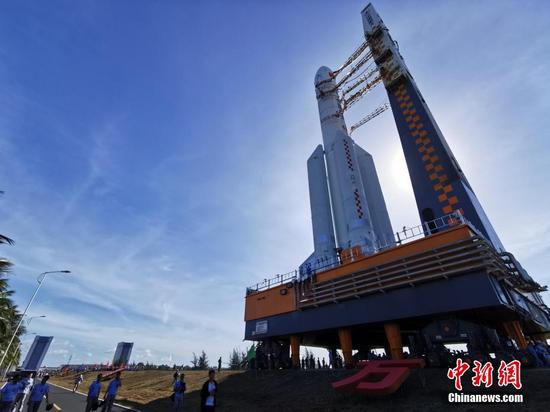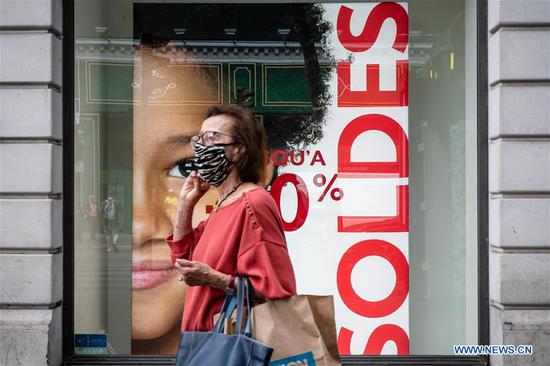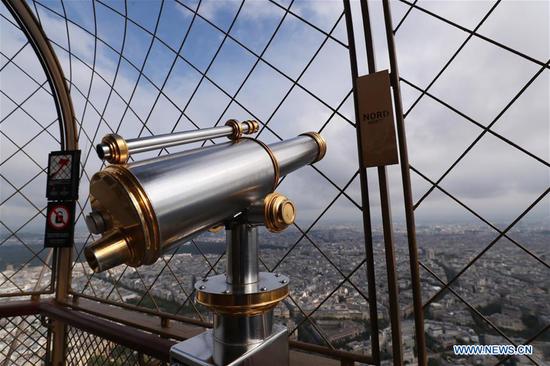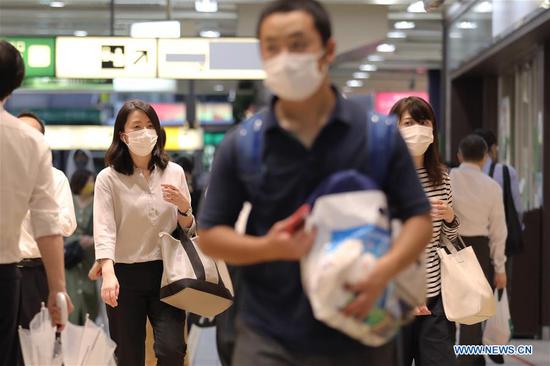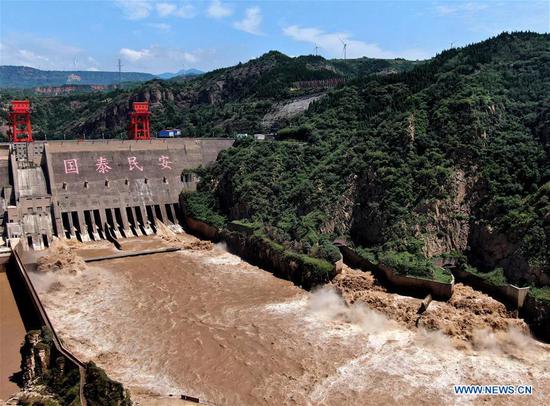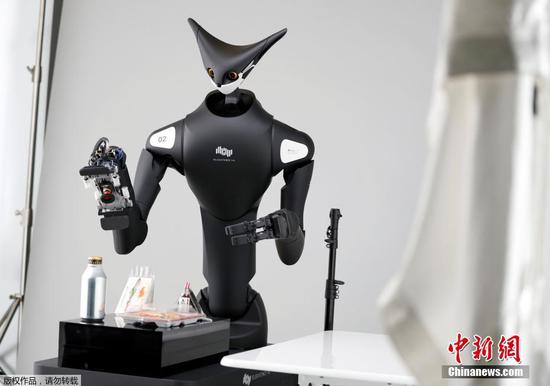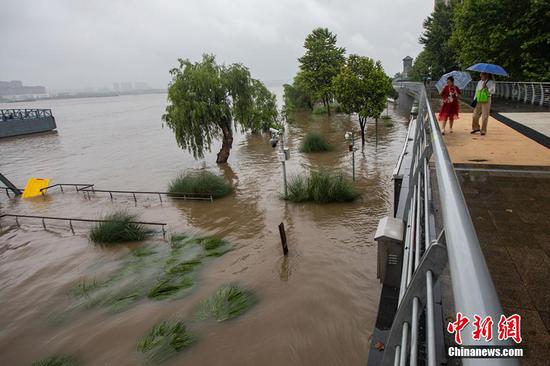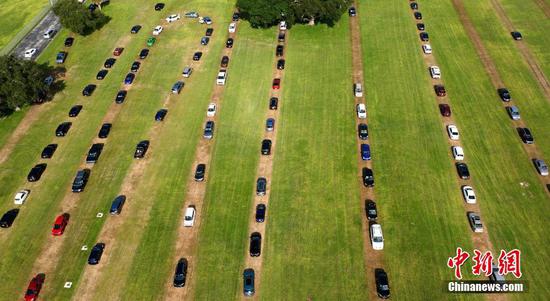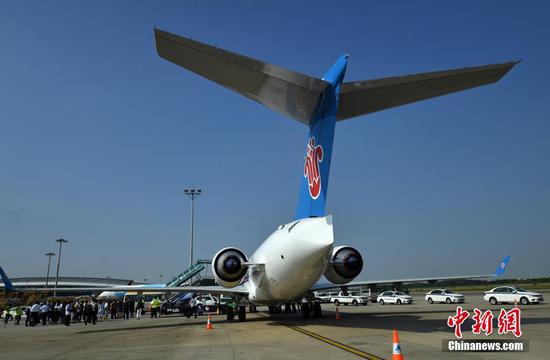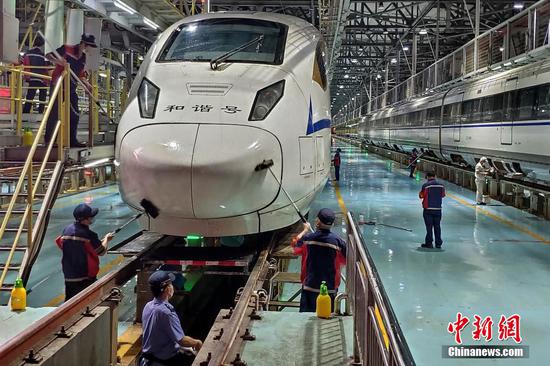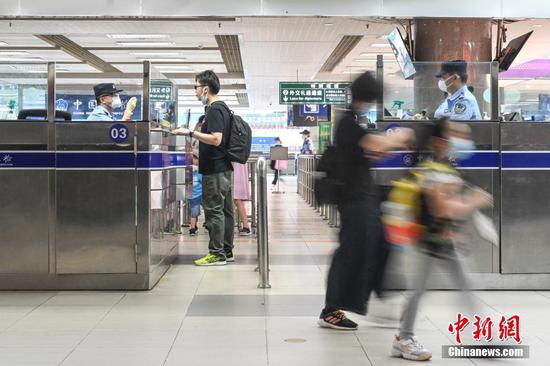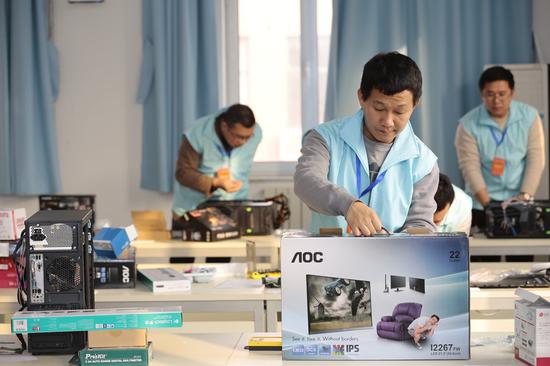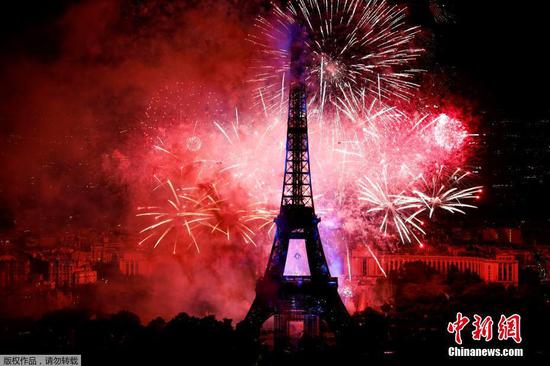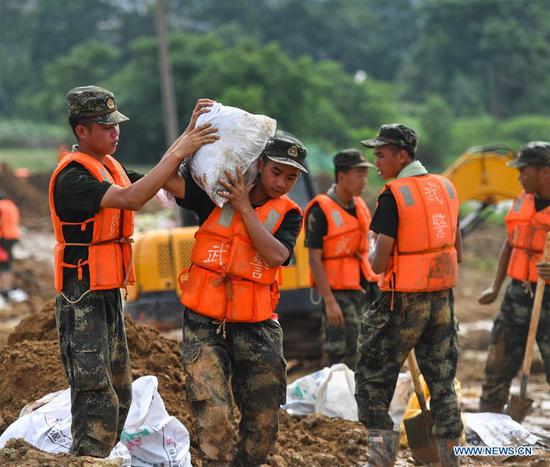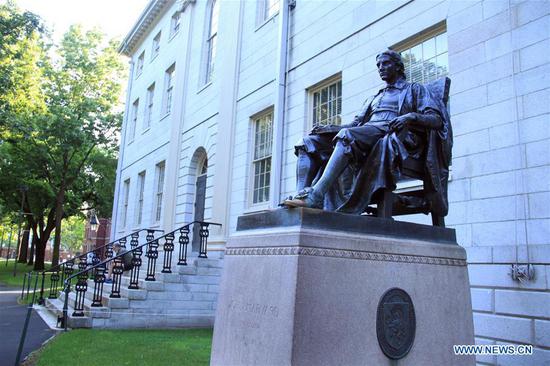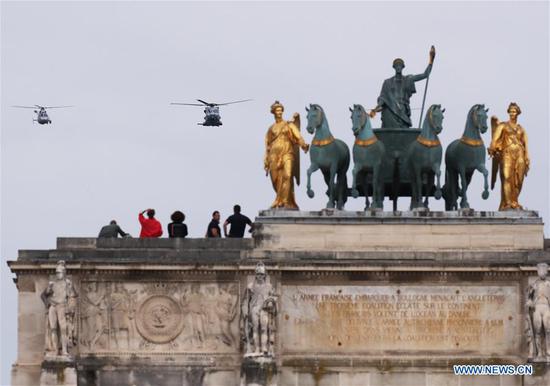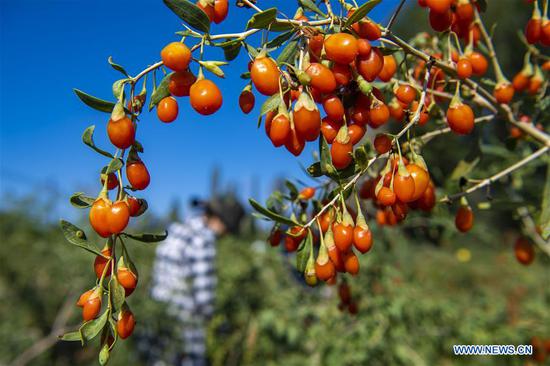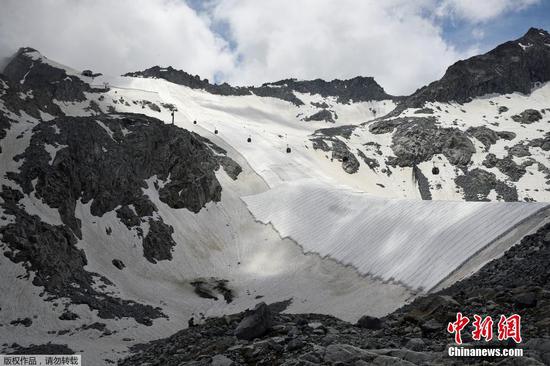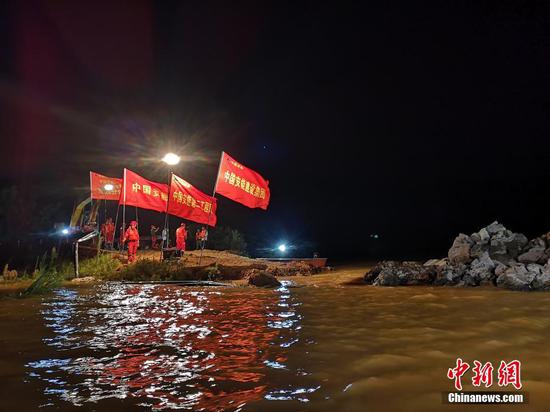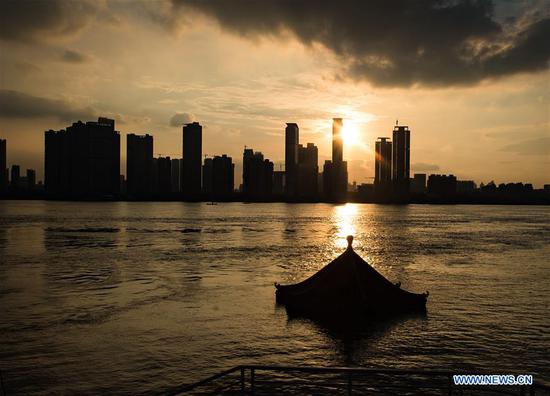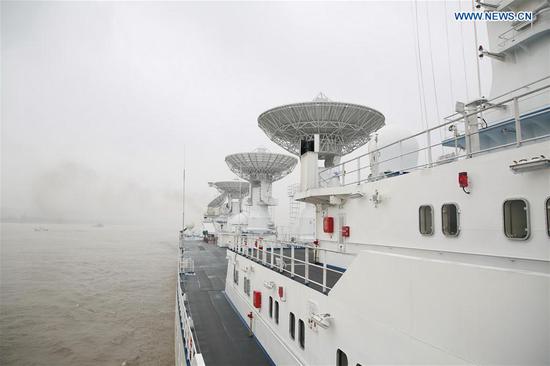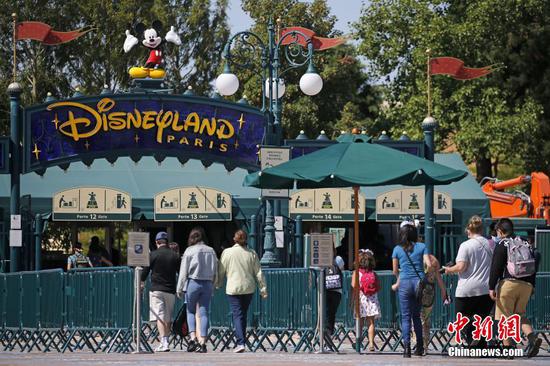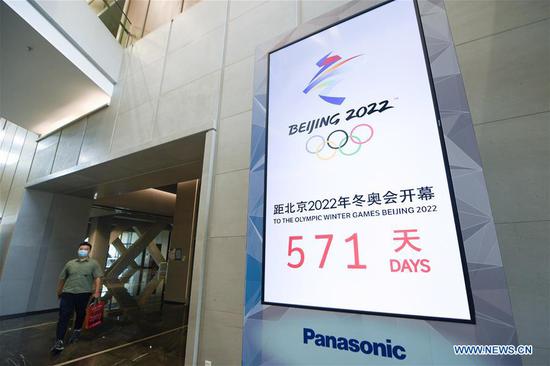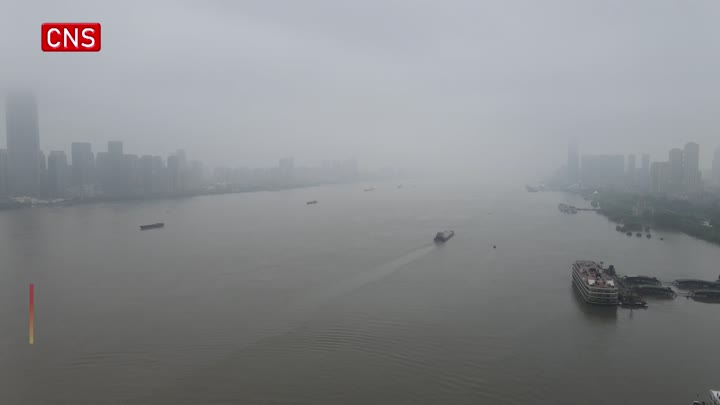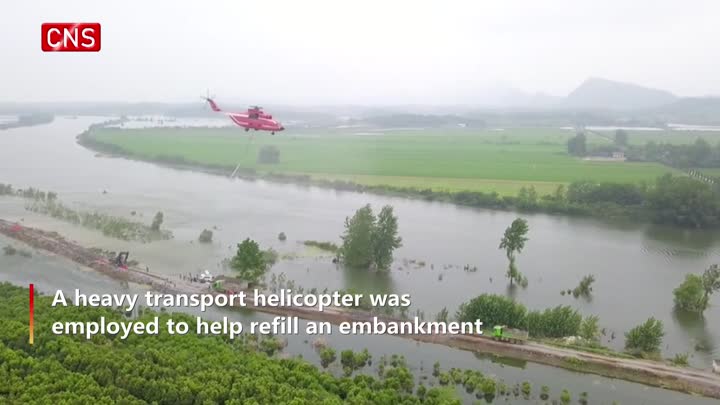Hong Kong announced new anti-epidemic measures on Sunday, including mandatory mask-wearing in all indoor public places, as daily confirmed cases for the first time surpassed 100 since the COVID-19 outbreak.
The move came a few days after the Hong Kong Special Administrative Region (HKSAR) government tightened control measures in the face of a worsening epidemic situation.
There has been no sign that the coronavirus spread is brought under control, HKSAR Chief Executive Carrie Lam told a press conference on Sunday afternoon.
At another press briefing, Chuang Shuk-kwan, head of the Communicable Disease Branch of the Center for Health Protection said that due to the surging new cases, the center was only able to count 108 confirmed cases from 4:00 p.m. local time to midnight Saturday and the number of cases on Sunday has yet to be calculated.
The COVID-19 tally in Hong Kong accumulated to 1,885.
Of the new cases, 83 were local infections, and the transmission chains of 48 of them were still unknown.
Lam said the Executive Council will convene a special meeting to revise an anti-disease regulation to make it mandatory for people to wear face masks in all indoor public places, an escalation from the existing requirement of mask-wearing on public transport.
The closures of 12 types of entertainment venues and dining restrictions over restaurants, due to expire on Tuesday, will be extended for another seven days, Lam said.
Lam also said civil servants who do not provide emergency and essential services will start to work from home for a week since Monday. She advised schools to avoid group gatherings of students and adopt safe approaches to inform students of their exam scores.
Hong Kong has witnessed a resurgence of COVID-19 cases over the past weeks as the daily new cases have reached new highs for multiple times.
There were 519 confirmed cases over the past two weeks ending 4:00 p.m. local time Saturday, with 411 local infections, Lam noted, adding that the deaths rose to 12.
Hong Kong's Hospital Authority said 463 COVID-19 patients were in hospital, with 19 in critical condition.
As the surging infections strained medical sources including hospital beds and quarantine facilities, Lam said the government will renovate a holiday inn and an exhibition venue near Hong Kong International Airport to offer more units for asymptomatic and stable patients.
Hong Kong will also build 2,000 more quarantine units in Penny's Bay area with the goal of completing the construction by the end of the year. The new units will serve as long-term quarantine facilities in preparation for the possible next wave of the pandemic.
The worsening epidemic situation was partly attributed to so-called "primaries" held by opposition camps for the Legislative Council election and massive illegal assemblies, which led to disorderly public gatherings and created a huge loophole in anti-disease efforts.
Chow Pak-chin, a doctor and also chairman of think tank Wisdom Hong Kong, said the activities organized by opposition camps cannot be excluded as the main reason for the new round of COVID-19 outbreak.
Whether the participants of the gatherings wore face masks, touched items around and dined together can be significant factors for the spread of the coronavirus, Chow said.
Opposition camps set up more than 250 voting stations across Hong Kong for its "primaries" from July 11 to July 12, which assembled large groups of people in narrow space.
Three infections were reported in the Tuen Mun Eye Center, which was close to a voting point of the "primaries."









